MercoPress. South Atlantic News Agency
Tag: Mauricio Macri
-
Thursday, June 21st 2018 - 14:38 UTC
“The Argentine claim to our Falkland Islands is unfounded and unwelcome”
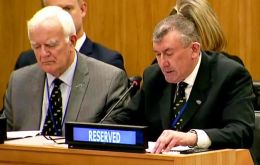
”We have a right to live in peace, in freedom and to determine our own future”. “We have a right to live in peace, we have a right to our freedom and above all we have a right to determine our own future”, Falkland Islands elected lawmaker, MLA Ian Hansen told the United Nations decolonization committee or C24 on Wednesday, in New York.
-
Thursday, June 21st 2018 - 06:55 UTC
A good one for Macri: MSCI decides to reclassify Argentina as an emerging market

Index provider MSCI said on Wednesday it will reclassify Argentina as an emerging market and begin including Saudi Arabia in that classification, sharply broadening the investor base for both countries in a move that could be supportive of their equity markets. The decisions will be effective beginning in mid-2019.
-
Friday, June 15th 2018 - 06:56 UTC
Forex run in Argentina: Macri appoints new Central bank president
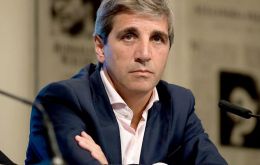
Argentine president Mauricio Macri appointed Finance Minister Luis Caputo as president of the central bank on Thursday, after the outgoing head of the bank resigned and acknowledged having lost credibility.
-
Thursday, June 14th 2018 - 22:14 UTC
IMF's Lagarde welcomes Argentina government’s economic policy plans
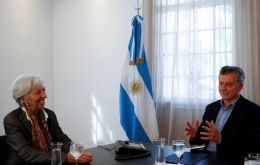
Argentine authorities have asked to use US$7.5 billion of the US$50 billion financing deal signed with the International Monetary Fund to fund their budget, IMF Managing Director Christine Lagarde said in a statement. Argentina’s Finance Ministry said in a separate statement that the funds would be sold on the market through pre-announced daily auctions conducted by the central bank.
-
Thursday, June 14th 2018 - 22:11 UTC
Argentine president Macri was detected a benign pancreatic cyst: “a treatment is not necessary”
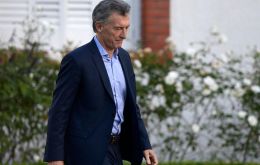
Argentine president Mauricio Macri was detected a benign cyst in the pancreas, according to an official release from the Executive Office. The condition was discovered during a routine medical checkup last 23 May and following clinical studies including a magnetic resonance, the diagnosis was confirmed but a treatment is not necessary, although he will continue under medical monitoring.
-
Thursday, June 14th 2018 - 21:23 UTC
Legal abortion bill in Argentina faces an even steeper up hill in the Senate
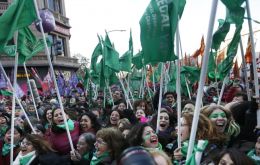
The lower house of Argentina’s Congress on Thursday narrowly passed a Bill to legalise abortion through 14 weeks of pregnancy after a tight vote on a proposal that has divided the South American nation.
-
Monday, June 11th 2018 - 07:28 UTC
Argentina/Falklands “constructive spirit” will be tested at the UN C24 presentations
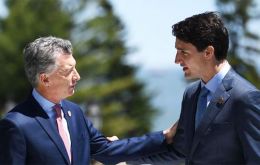
The constructive spirit and pragmatic attitude towards Argentina/United Kingdom relations and shared interests seems to have spilled positively to international forae, for example the latest OAS general assembly declaration regarding the Malvinas Islands, which does not mention “militarization of the South Atlantic or nuclear arms”, as was common in the Kirchner couple years, and rather keeps to the traditional annual disputed sovereignty claim under the umbrella of the United Nations.
-
Wednesday, June 6th 2018 - 09:13 UTC
Argentina cancels exhibition match on Saturday in Jerusalem

The football exhibition match between Israel and Argentina slated for Saturday in Jerusalem has been canceled, Israel's embassy in Argentina confirmed early Wednesday, citing unspecified 'threats and provocations' against star player Lionel Messi.
-
Friday, June 1st 2018 - 09:00 UTC
Tierra del Fuego insists with a representative in the SW Atlantic Fisheries sub committee
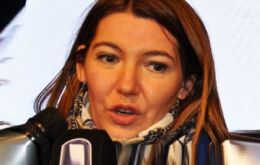
Tierra del Fuego media and Clarin in Buenos Aires coincide that foreign minister Jorge Faurie has admitted the possibility for a representative from the extreme south province to attend the Argentine/UK South West Atlantic Fisheries Scientific Sub Committee meetings, which were recently re-launched at the Argentine capital.
-
Thursday, May 31st 2018 - 09:01 UTC
Argentine Senate votes 37 to 30 to freeze utility rates; Macri expected to veto the bill
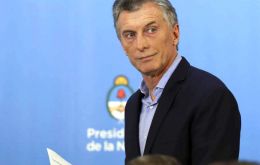
Following twelve hours of heated and at time acrimonious debate the Argentine Senate on early Thursday voted, 37 to 30, to freeze utility prices. President Mauricio Macri had anticipated that if the bill was passed he would veto it because there is no way the budget can stand an additional 1% of GDP deficit.
